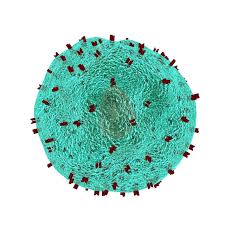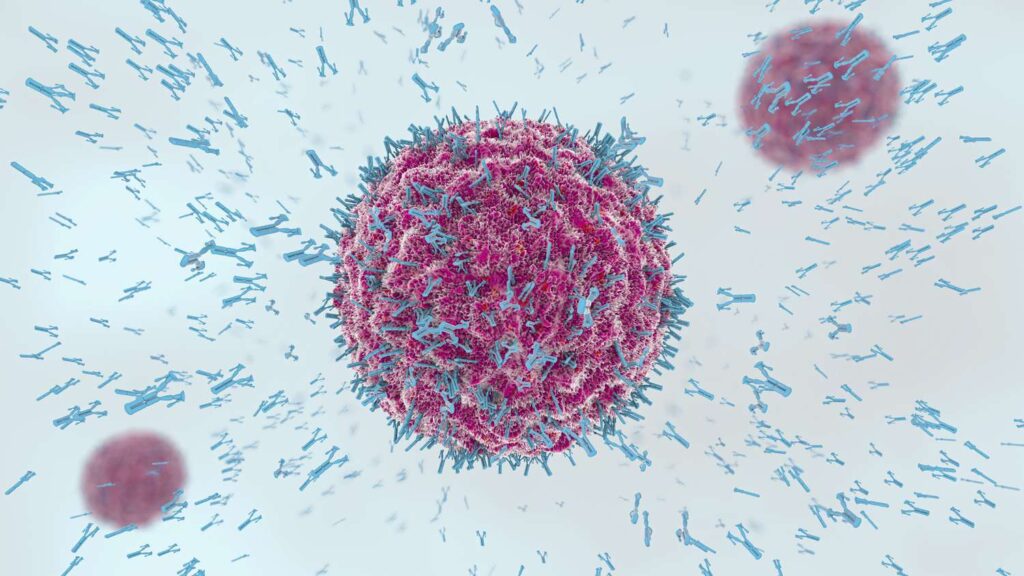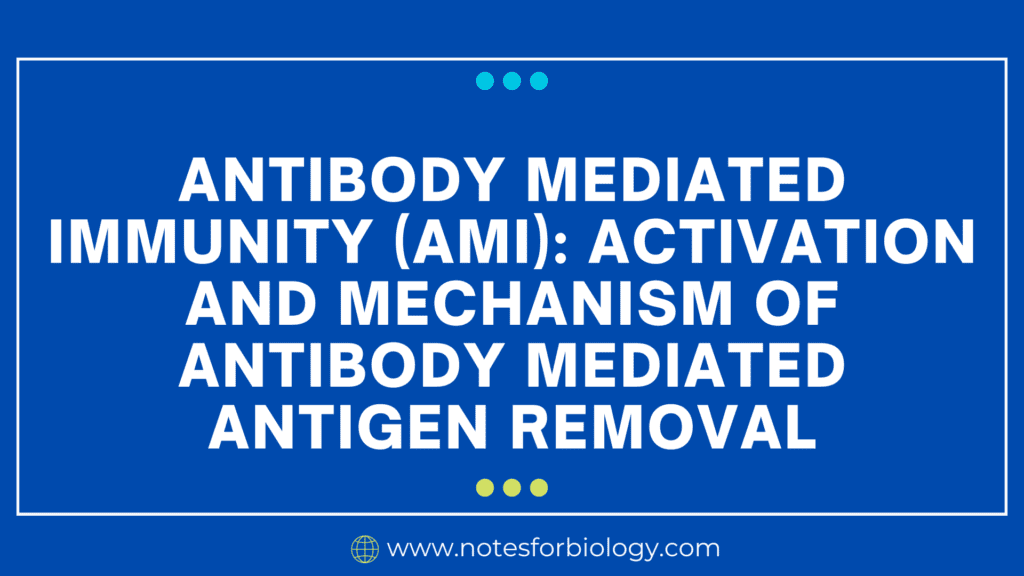Antibody mediated immunity (AMI), also known as humoral immunity, is a crucial arm of the adaptive immune system, responsible for protecting the body from a wide range of pathogens, toxins, and foreign substances. Antibody mediated immunity relies on the production of antibodies, highly specific proteins produced by B lymphocytes, which bind to and neutralize antigens. This complex process involves a series of intricate steps, culminating in the elimination of the invading antigen.
Table of Contents
Activation of AMI: A Symphony of Cellular Interactions
The activation of Antibody mediated immunity is a tightly regulated process, involving a collaboration between various immune cells:
Antigen Encounter: The journey begins when an antigen, such as a virus or bacterium, enters the body. This initial encounter triggers an immune response.
Antigen Presentation: Specialized cells called antigen-presenting cells (APCs), such as macrophages and dendritic cells, engulf the antigen and process it into smaller fragments. They then display these fragments on their surface, bound to MHC II molecules.
T Cell Activation: This antigen-MHC II complex is recognized by T helper cells (Th cells), specifically the Th2 subset. The binding triggers the activation of Th2 cells, leading to their proliferation and differentiation.

B Cell Activation: Activated Th2 cells release cytokines, signaling molecules that activate B cells. These B cells have specific receptors on their surface, called B cell receptors (BCRs), capable of recognizing the same antigen that initially triggered the immune response.

B Cell Differentiation: Upon encountering the antigen, B cells differentiate into plasma cells, the antibody factories of the immune system. These plasma cells begin producing antibodies, specifically targeting the antigen that initiated the process.
Mechanism of Antibody Mediated Antigen Removal: A Multifaceted Approach
Once antibodies are produced, they can neutralize and eliminate antigens through various mechanisms:
Neutralization: Antibodies bind to antigens, effectively blocking their ability to interact with host cells and preventing them from causing harm. For instance, antibodies can neutralize viruses by binding to their surface proteins, preventing them from attaching to and entering host cells.
Opsonization: Antibodies coat antigens, making them more attractive targets for phagocytic cells like macrophages and neutrophils. These cells engulf and destroy the antigen-antibody complexes. This process, called opsonization, enhances the efficiency of phagocytosis.
Complement Activation: Antibodies activate the complement system, a cascade of proteins circulating in the blood. This activation leads to the formation of the membrane attack complex (MAC), which punctures the cell membrane of pathogens, leading to their lysis and destruction.
Antibody-Dependent Cell-Mediated Cytotoxicity (ADCC): Antibodies can bind to antigens on the surface of infected cells, marking them for destruction by natural killer (NK) cells. These cells recognize the antibody-bound cells and release cytotoxic granules, eliminating the infected cells.
Immobilization and Agglutination: Antibodies can bind to antigens on bacterial flagella or pili, preventing their movement and reducing their infectivity. They can also cause agglutination, clumping together multiple pathogens, making them easier to engulf by phagocytes.
The Memory of AMI: Long-Term Protection
While some B cells differentiate into short-lived plasma cells, others develop into long-lived memory B cells. These cells retain the ability to quickly produce antibodies upon re-exposure to the same antigen. This immunological memory is crucial for providing long-lasting immunity, allowing the body to mount a more rapid and robust response to subsequent infections.
AMI in Action: Fighting Off Infections
The diverse mechanisms employed by Antibody mediated immunity play a critical role in combating a wide range of infections, including:
Viral Infections: Antibodies can neutralize viruses, preventing them from entering cells and spreading throughout the body. They can also activate the complement system, leading to viral lysis.
Bacterial Infections: Antibodies can opsonize bacteria, promoting their engulfment by phagocytes. They can also activate the complement system and contribute to the formation of the MAC, leading to bacterial lysis.
Parasitic Infections: Antibodies can neutralize toxins produced by parasites, and some can directly attack parasites, promoting their destruction.
Beyond Infections: The Importance of AMI
Antibody mediated immunity is not only essential for fighting off infectious diseases but also plays a role in other important biological processes:
Immune Tolerance: AMI helps maintain immune tolerance, preventing the immune system from attacking the body’s own tissues.
Autoimmune Diseases: In autoimmune diseases, the immune system mistakenly attacks the body’s own tissues. Dysregulation of AMI can contribute to the development of these diseases.
Conclusion: The Power of Antibody Mediated Immunity
Antibody mediated immunity is a critical defense mechanism, providing protection against a wide array of pathogens and foreign substances. Its activation and antigen removal processes involve a complex interplay of cells, cytokines, and antibodies, demonstrating the intricate and sophisticated nature of the immune system. Understanding the mechanisms of AMI is crucial for developing effective vaccines and therapies for infectious diseases, autoimmune disorders, and other medical conditions.
Frequently Asked Questions(FAQ)
What do you mean by Antibody mediated immunity?
Antibody mediated immunity (AMI), also known as humoral immunity, is a crucial arm of the adaptive immune system, responsible for protecting the body from a wide range of pathogens, toxins, and foreign substances.
What is the importance of Antibody mediated immunity ?
The importance of Antibody mediated immunity ,
Immune Tolerance: AMI helps maintain immune tolerance, preventing the immune system from attacking the body’s own tissues.
Autoimmune Diseases: In autoimmune diseases, the immune system mistakenly attacks the body’s own tissues. Dysregulation of AMI can contribute to the development of these diseases.
Related Articles

